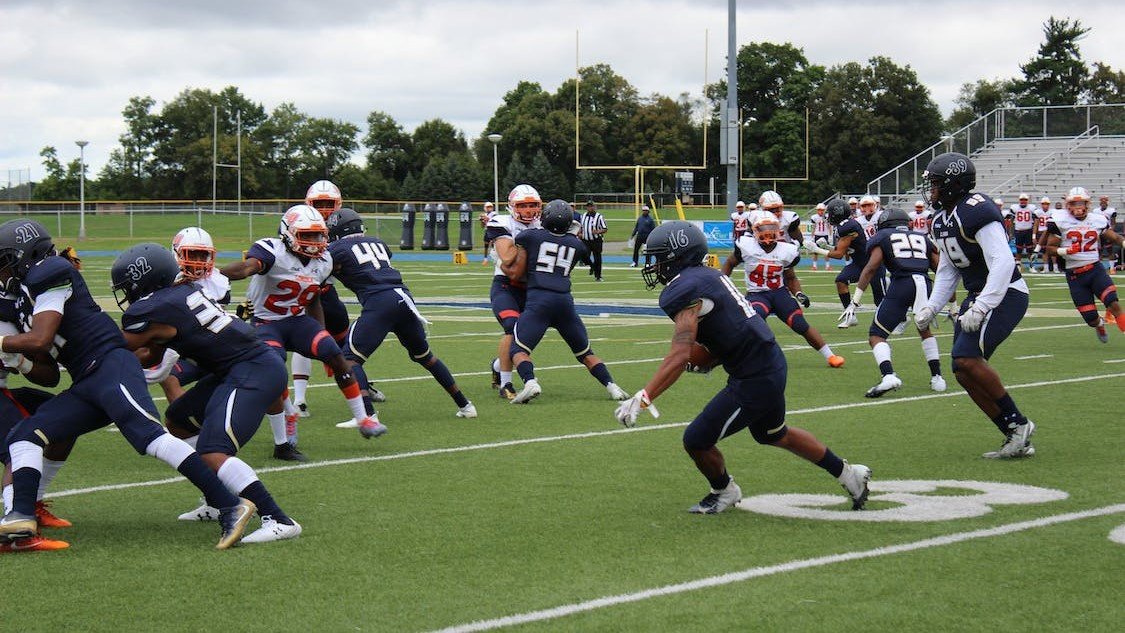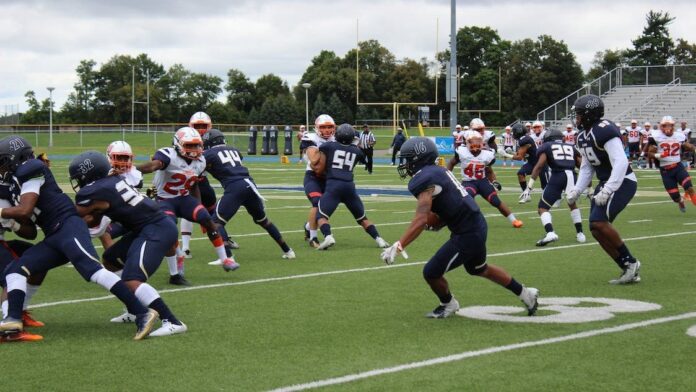
College football holds an unparalleled significance in American sports culture, captivating the hearts of millions of fans nationwide. Alongside the increasing popularity of college football, sports betting on college football games has surged in recent years.
This article delves into the intricate web of college football betting in the US and the growing search for the best NCAA football odds, examining the legal framework, state-specific variations, responsible gambling initiatives, the NCAA’s stance, and the evolving impact of regulations on the industry.
The Ever-Changing Legal Landscape of College Football Betting
The landscape of college football betting has experienced a profound metamorphosis subsequent to the repeal of the Professional and Amateur Sports Protection Act (PASPA) in May 2018. The seminal ruling by the Supreme Court effectively restored states’ prerogative to legalize sports betting, encompassing the domain of college football wagering. As a consequence, a diverse array of state-specific methodologies emerged, engendering a mosaic of disparate rules and regulations pertaining to sports betting across the nation.
States like New Jersey, Pennsylvania, and Indiana embraced the opportunity to legalize college football betting early on, offering an array of betting options and markets. Other states have cautiously approached sports betting, imposing restrictions or limiting betting on in-state college football teams. This diversity has created a complex landscape that poses challenges for both bettors and sportsbooks, who must navigate varying regulatory requirements.
Responsible Gambling Initiatives and Consumer Protection
The expansion of college football betting has been met with a commitment to responsible gambling initiatives and consumer protection. Sportsbooks and betting operators have implemented measures to promote responsible betting practices, such as setting deposit limits, providing self-exclusion options, and offering educational resources on gambling addiction.
The focus on responsible gambling aims to mitigate potential risks associated with sports betting, ensuring that bettors can engage in college football wagering responsibly. Moreover, these initiatives create a safer and more enjoyable betting environment, addressing concerns regarding problem gambling and the well-being of individuals involved in college football betting.
NCAA’s Role and Integrity Measures
The NCAA, as the authoritative entity governing college sports, has consistently adopted a prudent approach towards sports betting, prioritizing the protection of the integrity of college football and other intercollegiate athletic competitions. Despite the legalization of college football betting in certain states, the NCAA has firmly upheld stringent regulations that unequivocally forbid athletes, coaches and other relevant personnel from participating in sports wagering activities.
To protect the integrity of college football competitions, the NCAA has enhanced its monitoring and integrity measures, employing sophisticated technologies to detect any suspicious betting activities that may compromise the fairness of the games. The NCAA’s proactive measures underscore its commitment to maintaining the credibility and reputation of college football.
Impact of College Football Betting Regulations on the Industry
The diverse regulatory environment for college football betting has wide-ranging implications for the betting industry and its stakeholders. The legalization of sports betting has attracted an influx of bettors, leading to increased betting activity and revenue for sportsbooks and state governments alike.
However, compliance with different state regulations presents operational challenges for sportsbooks, as they must tailor their offerings to adhere to each state’s specific rules. Additionally, bettors must navigate varying betting options and restrictions based on their location, affecting their choices in selecting reputable sportsbooks.
Future Trends in College Football Betting Regulations
The future of college football betting regulations remains uncertain, as more states explore the possibility of legalizing sports betting. Several states are currently considering sports betting legislation and the industry’s landscape may continue to evolve in response to technological advancements, market demands and public sentiment.
As the industry progresses, stakeholders will advocate for standardized regulations to ensure consistency in college football betting rules across states. Emphasizing responsible gambling initiatives and consumer protection will remain critical in cultivating a sustainable and enjoyable college football betting experience.
The Impact of College Football Betting on Fan Engagement
The legalization and expansion of college football betting have had a transformative effect on fan engagement with the sport. With the advent of legal sports betting, fans have found a new level of excitement and involvement in college football games. Bettors are more likely to closely follow teams and games as their wagers add an extra layer of investment and interest.
This heightened engagement has translated into increased viewership for televised games and higher attendance at stadiums, resulting in a boost to the overall college football experience. The integration of betting-related content and analytics has also enhanced the fan experience, providing a deeper understanding of college football odds, every game detail, and players’ performance.
The Role of Technology in College Football Betting
The convergence of technology and college football betting has revolutionized the industry, offering bettors a more sophisticated and immersive betting experience. Mobile betting applications and online sportsbooks have become ubiquitous, allowing fans to place wagers conveniently from their smartphones and computers.
Real-time access to odds, scores and statistics empowers bettors to make informed decisions on the fly. Additionally, the emergence of live betting, or in-play betting, enables bettors to place wagers during games, reacting to unfolding events and enhancing the thrill of college football matches. Data analytics and predictive models have also become essential tools for bettors seeking an edge, leveraging vast amounts of data to make strategic betting choices.
Evolving Challenges and Future Prospects
As college football betting continues to flourish, it faces a myriad of evolving challenges and prospects. The harmonization of regulations across states remains an ongoing concern, as inconsistencies in betting rules can create complexities for sportsbooks and bettors operating in multiple jurisdictions. The NCAA and colleges must also grapple with potential integrity issues and ensure that their student-athletes remain shielded from undue influences related to betting.
The future of college football betting looks promising, with more states exploring legalization and an increasing acceptance of sports betting within society. Technological advancements will likely play a pivotal role in shaping the industry, with innovations such as virtual reality and augmented reality enhancing the betting experience further.
Safe and Balanced Landscape for College Football
College football betting in the US has experienced a paradigm shift since the repeal of PASPA, opening up new opportunities for bettors and sportsbooks alike. The legal landscape for college football betting varies from state to state, necessitating careful navigation of the rules and regulations. Responsible gambling initiatives have been vital in creating a safe betting environment, focusing on consumer protection and promoting responsible betting practices.
The NCAA’s commitment to maintaining the integrity of college football competitions further strengthens the industry’s credibility. As the college football betting landscape continues to evolve, stakeholders must collaborate to strike a balance between fostering a thriving betting industry and preserving the sanctity of college football.
Original article: https://www.yogonet.com/international/noticias/2023/08/16/68352-college-football-betting-in-the-us-rules-and-regulations














